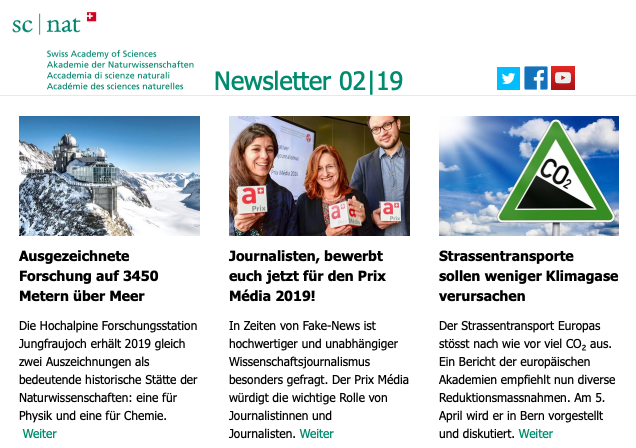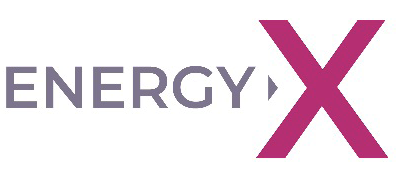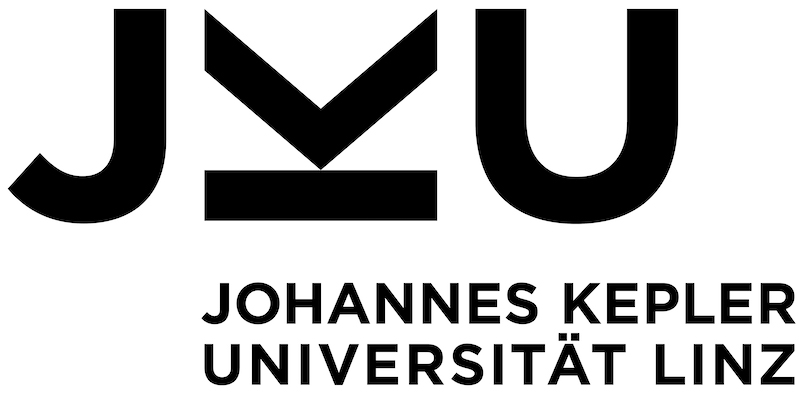EPFL strengthens its brand identity for its 50th anniversary
![]() EPFL’s new brand identity is centered on its acronym. The logo, composed of the School’s four letters, is simple yet sophisticated, and it proudly bears Switzerland’s hallmark red color. “We wanted a logo that reflects our school’s energy, pioneering spirit, technological leadership and international reach. In other words, our identity as a startup that has grown rapidly and is now an adult,” says EPFL President Martin Vetterli.
EPFL’s new brand identity is centered on its acronym. The logo, composed of the School’s four letters, is simple yet sophisticated, and it proudly bears Switzerland’s hallmark red color. “We wanted a logo that reflects our school’s energy, pioneering spirit, technological leadership and international reach. In other words, our identity as a startup that has grown rapidly and is now an adult,” says EPFL President Martin Vetterli.
The School worked with Lausanne-based branding agency Moser Design to develop its new brand identity. Two online surveys were carried out to evaluate how EPFL is perceived both within its community and by the general public. Some 20,000 people participated in the survey, pointing to brand attributes such as excellence, international reputation, engineering, innovation, research and Swiss-based.
The font selected for the new logo, Helvetica Neue, was created in Switzerland and is well-known around the world. It was born in the 1960s, like EPFL, and it symbolizes Switzerland’s place at the forefront of technology at the time. The agency reworked the original font slightly to make it more contemporary, easier to read and unique, and to better reflect where EPFL is today. “Developing a new brand identity for an institution like EPFL was an exciting challenge. The School profoundly affects the lives of those who study or teach there. As a hub of research and knowledge, EPFL is a source of personal and professional fulfillment. We wanted to reflect all of that in the new design,” says Caroline Moser, CEO of Moser Design.
The new visual identity consists of more than just the logo, as it covers the full range of graphic elements that convey the School’s brand. The logo itself figures prominently on campus, in the form of a 2.6-meter-high metal sculpture next to the Rolex Learning Center.
Source: Mediacom / news.epfl.ch
David Spichiger, SCS
19.03.2019
Job Offer Johannes Kepler Universität Linz: Professur für chemische Verfahrenstechnik
Am Institut für Verfahrenstechnik an der Technisch-Naturwissenschaftlichen Fakultät der Johannes Kepler Universität Linz ist eine
Professur für chemische Verfahrenstechnik
in Form eines unbefristeten privatrechtlichen Angestelltenverhältnisses gemäß § 94 Abs. 2 Z 1 UG ehest möglich zu besetzen. Die Anstellung erfolgt gemäß § 98 UG.
Aufgabe des Stelleninhabers bzw. der Stelleninhaberin wird es sein, das Fachgebiet in Lehre und Forschung zu vertreten und weiter zu entwickeln. Bewerbungsvoraussetzung ist eine Habilitation oder habilitationsäquivalente Forschungsleistung im Bereich der Chemischen Verfahrenstechnik. Die detaillierten Anforderungen sind in einem Stellenprofil dokumentiert, das im Internet unter der Adresse www.jku.at/professuren abrufbar ist. Für eventuelle Fragen steht Univ.-Prof. Dr. Oliver Brüggemann (+43 732 2468 9082, ) zur Verfügung.
Es ist eine auf freiwilliger Basis beruhende Vereinbarung eines Gehaltes, das über dem kollektivvertraglich vorgesehenen Mindestgehalt von derzeit 71.822,80 € liegt, vorgesehen. Abhängig von der derzeitigen Position (gegenwärtiges Gehalt) beträgt der Rahmen des jährlichen Bruttogehaltes (kollektiv-vertragliches Mindestgehalt zuzüglich freiwillige Überzahlung) 80.000,- € bis 100.000,- €.
Die Johannes Kepler Universität strebt eine Erhöhung des Anteils an Frauen im wissenschaftlichen Personal an und fordert deshalb qualifizierte Frauen nachdrücklich auf, sich zu bewerben. Bei gleicher Qualifikation wird bevorzugt eine Frau berufen. Begünstigt behinderte Bewerber/innen werden bei entsprechender Eignung besonders berücksichtigt.
Interessent/inn/en werden gebeten, ihre Bewerbung unter Beachtung der im Stellenprofil angegebenen Kriterien samt den dort verlangten Anlagen sowie dem Formblatt in elektronischer Form bis zum 24. April 2019 an den Rektor der Johannes Kepler Universität Linz () zu senden. Falls die Übersendung der Anlagen in elektronischer Form nicht möglich ist, sind diese in fünffacher Ausfertigung derart zu übersenden, dass diese längstens innerhalb einer Nachfrist von einer Woche nach Ende der Bewerbungsfrist beim Rektor einlangen.
David Spichiger, SCS
10.03.2019
SCNAT Newsletter, March 2019

Ausgezeichnete Forschung auf 3450 Metern über Meer
Die Hochalpine Forschungsstation Jungfraujoch erhält 2019 gleich zwei Auszeichnungen als bedeutende historische Stätte der Naturwissenschaften: eine für Physik und eine für Chemie.
Weiter
Journalisten, bewerbt euch jetzt für den Prix Média 2019!
In Zeiten von Fake-News ist hochwertiger und unabhängiger Wissenschaftsjournalismus besonders gefragt. Der Prix Média würdigt die wichtige Rolle von Journalistinnen und Journalisten.
Weiter
Strassentransporte sollen weniger Klimagase verursachen
Der Strassentransport Europas stösst nach wie vor viel CO₂ aus. Ein Bericht der europäischen Akademien empfiehlt nun diverse Reduktionsmassnahmen. Am 5. April wird er in Bern vorgestellt und diskutiert.
Weiter
Anthropozän: menschlicher Einfluss während des Quartärs
Die diesjährige Tagung der Schweizerischen Gesellschaft für Quartärforschung (CH-QUAT) widmet sich dem Anthropozän. Referentinnen und Referenten präsentieren ihre Forschung zu verschiedenen Aspekten des Anthropozäns und zum menschlichen Einfluss auf Landschaft, Umwelt und Klima während des Quartärs. Posterbeiträge zu allen Aspekten der Quartärforschung und ohne geografische Beschränkung sind willkommen. Wir ermutigen insbesondere junge Forschende ihre aktuelle Arbeit vorzustellen. Die CH-QUAT-Tagung findest am 30. März an der Universität Basel statt.
Weiter
Museen, bewerbt euch für den Prix Expo 2019!
Macherinnen und Macher naturwissenschaftlicher Ausstellungen können sich jetzt für den Prix Expo 2019 bewerben. Mit dem Prix Expo zeichnet die SCNAT Ausstellungen in der Schweiz aus, welche die Faszination der Natur und der Naturwissenschaften einem breiten Publikum fachlich fundiert und erlebnisorientiert vermitteln. Der Preis ist mit 10'000 Franken dotiert und wird jährlich vergeben. Einsendeschluss: 1. Juni 2019.
Weiter
150 Jahre Periodensystem
Vor 150 Jahren schuf der russische Chemiker Dmitri Mendelejew das Periodensystem der Elemente. In Erinnerung daran und um die Bedeutung der chemischen Grundlagenforschung und des Periodensystems hervorzuheben, haben die Vereinten Nationen 2019 zum Jahr des Periodensystems erklärt. Welche Aktivitäten dazu in der Schweiz stattfinden, zeigt eine Website, welche die SCNAT zusammen mit anderen Organisationen aufgeschaltet hat. Dort können auch weitere Anlässe registriert werden.
Weiter
Nachhaltigkeitsziele der Uno: Was tun, was lassen?
Mit ihren 17 Zielen für eine nachhaltige Entwicklung wollen die Vereinten Nationen drängende globale Probleme gemeinsam lösen. Die Vielfalt von Stossrichtungen führt zu Widersprüchen und Zielkonflikten. Wo soll gehandelt und was unterlassen werden? Auf welcher wissenschaftlichen und moralischen Basis? Wie können Zielkonflikte entschärft werden? Diese Fragen diskutiert der Sustainable University Day 2019 an der Zürcher Hochschule für Angewandte Wissenschaften am 29. März 2019 in Wädenswil. Der Anlass richtet sich an Studierende, Mitarbeitende von Hochschulen und interessierte Personen.
Weiter
Morgen in den Alpen: Alpenwoche Intermezzo 2019
Wie ihre grosse Schwester, die alle vier Jahre stattfindende Alpenwoche, befasst sich auch die Alpenwoche Intermezzo mit der nachhaltigen Entwicklung im Alpenraum und damit verbundenen Themen. Die internationale Konferenz findet vom 3. bis 4. April 2019 in Innsbruck statt. Sie bringt wichtige Akteure aus den Alpen zu einem Meinungsaustausch zusammen. Die Alpenwoche Intermezzo beginnt mit einem politischen Austausch (nur auf Einladung) zur Zukunft des Alpenraums. Die Ergebnisse werden am darauffolgenden Tag vorgestellt. Anmeldung bis zum 15. März.
Weiter
Die SCNAT-Summerschool 2019 gewährt Einblicke ins Gehirn
Unser Gehirn lenkt uns täglich durchs Leben. Es verarbeitet Sinneseindrücke und steuert unser bewusstes und unbewusstes Verhalten. Was weiss man über dieses komplexe System? Die Summer School 2019 der SCNAT nimmt Gymnasiastinnen und Gymnasiasten mit auf eine Reise durch unser Denkorgan. Vom 5. bis 9. August 2019 entdecken sie zusammen mit renommierten Forscherinnen und Forschern die faszinierende Welt der Neurobiologie. Anmeldefrist bis 30. April.
Weiter
International Transdisciplinarity Conference 2019: Joining forces for change!
In line with the motto of the conference, which will take place in Gothenburg from 10 to 13 September 2019, the Network for Transdisciplinary Research (td-net) is inviting contributions from practitioners and researchers. Are you working in different types of collaborative research and change processes, to gauge the state of the art in both research and practice from across sectors and disciplines? Then, contribute in the form of session, presentation, poster, installation, workshop, network event or open stage. Submissions from practitioners and from transdisciplinary teams are particularly welcome. Submit your abstract until 24 March 2019. More
Reise in die Welt der Technik und Naturwissenschaften
Technik ist heute überall präsent. Oft sind wir uns dessen gar nicht bewusst – bis sie nicht mehr funktioniert. Die TecNight am 26. März 2019 an der Kantonsschule Heerbrugg (SG) unternimmt eine spannende Reise in die Welt von Technik und Naturwissenschaften. Rund 40 Fachleute aus Industrie und Forschung zeigen, wie diese unseren Alltag prägen und was der aktuelle Stand des Wissens ist. Der Anlass ist öffentlich und kann von Personen ab 12 Jahren besucht werden. Der Eintritt ist frei.
Weiter
Akademie der Naturwissenschaften Schweiz (SCNAT)
Haus der Akademien | Laupenstrasse 7 | 3008 Bern
Andres Jordi | Tel. 031 306 93 23 | www.scnat.ch
Fragen und Anregungen:
Transformative chemistry for a sustainable energy future
 Climate change makes it imperative that we discover ways of producing energy and chemicals sustainably and replacing the fossil fuels that form the basis for our energy and chemical industry. ENERGY-X will develop the science and the technology needed to enable economically sound production of carbon-neutral fuels, chemicals, and materials.
Climate change makes it imperative that we discover ways of producing energy and chemicals sustainably and replacing the fossil fuels that form the basis for our energy and chemical industry. ENERGY-X will develop the science and the technology needed to enable economically sound production of carbon-neutral fuels, chemicals, and materials.
The ENERGY-X CSA (Coordination & Support Action), funded by the EU’s Horizon 2020 programme, kicked-off on March 4th, 2019, in Prague. It will mobilise European researchers and industry over the next twelve months, in order to build a strategic roadmap towards a large-scale research initiative addressing the efficient conversion of solar and wind energy into chemical form. The ENERGY-X CSA includes 13 partners across Europe (Technical University of Denmark, Max Planck Society, Ghent University, Jerzy Haber Institute of Catalysis and Surface Chemistry Polish Academy of Sciences, CEA, Czech Academy of Sciences, Utrecht University, ERIC aisbl, ETH Zürich, RWI, Technical University of Valencia, DECHEMA, and EERA aisbl), and is supported by a large group of industrial companies.
ENERGY-X will contribute to new science and disruptive technology in the field of molecular and interfacial catalysis, and will combine this ambition with scale-up to industrially relevant conditions by integrating with European industry. Three central chemical processes for converting water, CO2, and N2 to fuels and base chemicals are the scientific targets.
Project coordinator Jens K. Nørskov, Villum Kann Rasmussen Professor at the Technical University of Denmark, said, “The approach is to aggregate fragmented knowledge and excellence throughout Europe by building on the existing critical mass and developing an ecosystem to overcome the unresolved barriers to these chemical conversion technologies. ENERGY-X will not only create scalable scientific solutions but also transfer this knowledge into two demonstration projects, namely the manufacturing of carbon-neutral aviation fuels and the decentralised production of fertilisers with zero CO2 footprint.”
ENERGY-X brings together an interdisciplinary academic research (chemistry, physics, engineering, economics and social science) with cross-industrial technological expertise (chemistry, engineering, utilities, mobility, agriculture) to provide a platform for future chemical energy conversion technology in Europe. It will consolidate and enhance the global leadership role of the European energy and chemical industry, benefitting job creation and sustainable growth in the EU.
Press Release, ENERGY-X
Prague, March 4th, 2019
Swiss Biotech Day, 7 May 2019, Basel
The Swiss Biotech Day is the leading biotechnology conference in Switzerland.
It is the place to be for entrepreneurs, investors, researchers, analysts, political decision makers and industry stakeholders from across Europe to meet and network.
Highlights of the upcoming event 2019 on May 7, in Basel include:
- 650+ senior life science executives from 20+ countries attend
- Presentation of the Swiss Biotech Report
- Swiss Biotech Success Stories Laureates 2018/2019
- Parallel tracks in the afternoon focused on innovative biotech start-ups and medium-sized biotech companies
- Thematically focused panel discussions on e.g. finance, production and licensing
- Pre-scheduled one-to-one partnering meetings for all attendees
- High-traffic exhibition with ongoing catering
Please find additional information on the program (will be constantly updated) as well as the registration site at www.swissbiotechday.ch
David Spichiger, SCS
26.02.2019
Page 73 of 305


